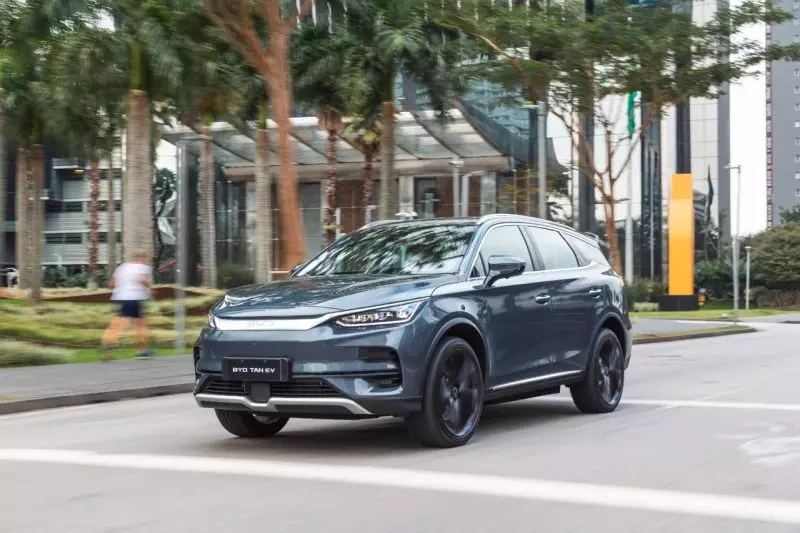In 2023, the automotive industry continues to evolve at a rapid pace with electric vehicles (EVs) taking center stage. According to a Bloomberg Green report, global EV sales are expected to surpass 10 million units by the end of the year, an impressive leap from previous years. As EVs grow in popularity, the debate between electric, hybrid, and traditional gasoline vehicles intensifies. In this article, we’ll explore the 2023 trends in cost, range, and efficiency, providing a comprehensive comparison of EVs, hybrids, and gas cars. Whether you’re a potential buyer or simply curious about the future of mobility, this guide will help you navigate the complexities of modern vehicle options.
Cost Comparison: EVs, Hybrids, and Gasoline Cars
Upfront Costs and Incentives
- Electric Vehicles (EVs): While the initial purchase price of EVs can be higher than their gas counterparts, federal and state incentives often bridge the gap. In the U.S., the Inflation Reduction Act continues to provide tax credits up to $7,500 for qualifying EVs.
-
Hybrids: These vehicles offer a middle ground in terms of cost. They are generally cheaper than EVs but more expensive than gas cars. However, hybrid owners may also benefit from certain incentives, though they are typically lower than those for full EVs.
-
Gasoline Cars: Traditionally, gas-powered vehicles have the lowest upfront cost. However, with fluctuating fuel prices and stricter emissions regulations, their long-term cost-effectiveness is less predictable.
Total Cost of Ownership
-
Electric Vehicles: EVs tend to have lower maintenance costs due to fewer moving parts and the absence of oil changes. According to a 2023 report by InsideEVs, EV owners save around $4,600 on maintenance over the vehicle’s lifetime compared to gas cars.
-
Hybrids: While they have more complex systems than gas cars, hybrids still offer reduced maintenance costs compared to traditional vehicles. Their fuel efficiency also contributes to lower operational costs.
-
Gasoline Cars: Although initially cheaper, gas vehicles often incur higher maintenance and fuel costs. With the global shift towards greener energy, the long-term viability of gas cars is increasingly questioned.
Range and Efficiency: The Real-world Performance
Driving Range
-
Electric Vehicles: A 2023 study from AutoCar highlights that the average EV now offers a range of about 250 to 300 miles on a single charge, with models like the Tesla Model S and Lucid Air surpassing 400 miles.
-
Hybrids: Hybrids are renowned for their extended range, combining electric and gasoline power. The Toyota Prius, for example, can travel over 600 miles on a full tank and charge.
-
Gasoline Cars: These vehicles typically offer a range of 300 to 400 miles, depending on fuel tank size and efficiency.
Fuel and Energy Efficiency
-
Electric Vehicles: EVs boast superior energy efficiency, converting over 77% of the electrical energy from the grid to power at the wheels, according to the U.S. Department of Energy.
-
Hybrids: With a combination of electric and gasoline power, hybrids achieve impressive fuel efficiency. The 2023 Hyundai Ioniq ranks among the top with over 58 miles per gallon (mpg).
-
Gasoline Cars: Despite advancements, gas cars remain less efficient, averaging about 25 mpg in urban settings.
Practical Tips: Choosing the Right Vehicle for You
Charging Infrastructure and Fuel Availability
-
Electric Vehicles: Charging infrastructure is rapidly expanding. As reported by TechCrunch, the number of public charging stations worldwide grew by 40% in 2023. Consider the availability of fast chargers like Tesla Superchargers and Electrify America stations in your area.
-
Hybrids: Hybrids offer flexibility with no charging dependency. They can be refueled at any gas station, making them ideal for those not ready to transition fully to electric.
-
Gasoline Cars: With a dense network of gas stations, fuel availability is rarely an issue for traditional vehicles.
Environmental Impact
-
Electric Vehicles: EVs significantly reduce carbon emissions, especially when charged with renewable energy sources. A PV Magazine analysis indicates EVs produce about half the lifecycle emissions of gas cars.
-
Hybrids: While not as green as EVs, hybrids still offer reduced emissions compared to traditional vehicles, particularly in urban driving conditions.
-
Gasoline Cars: These vehicles have the highest emissions, contributing to pollution and climate change. As regulations tighten, their environmental impact becomes increasingly scrutinized.
Conclusion: Navigating the Road Ahead
In 2023, the decision between EVs, hybrids, and gas cars rests on individual preferences and needs. Electric vehicles offer cutting-edge technology and environmental benefits, while hybrids provide a balanced approach with extended range and efficiency. Gasoline cars, although traditional, face growing challenges with sustainability and cost-effectiveness.
As you contemplate your next vehicle purchase, consider the long-term implications on your wallet and the planet. Will you drive into the future with an EV, enjoy the versatility of a hybrid, or stick with the tried-and-true gas car? Share your thoughts in the comments below and join the conversation about the future of transportation. With advancements in battery technology and charging infrastructure on the horizon, the automotive landscape is set for exciting transformations.

